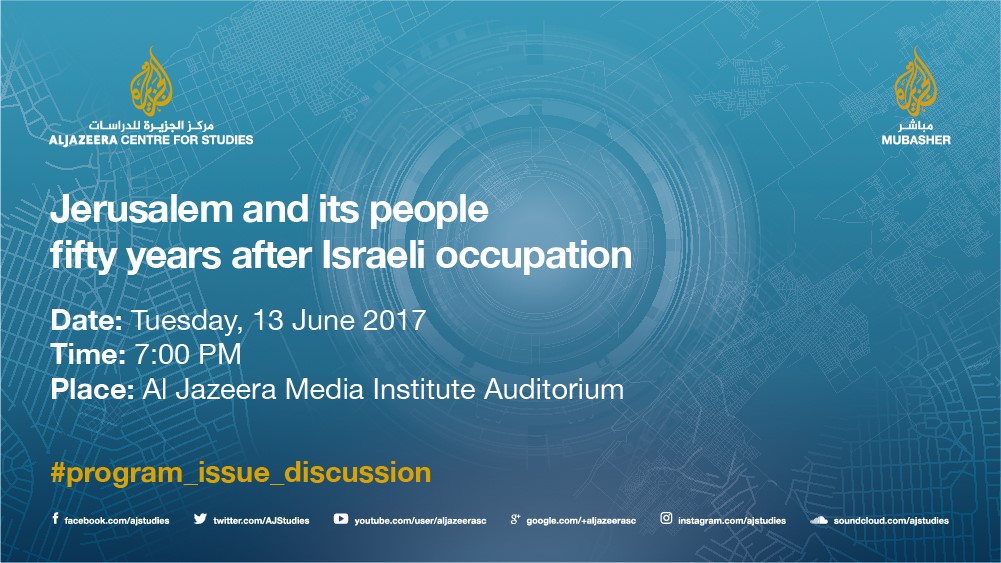
Israel has occupied Jerusalem and Al-Aqsa Mosque and continuously practiced Judaisation, suppression and excavations for fifty years. Many of Jerusalem’s Islamic and Christian landmarks have changed: names of streets, roads and alleys were Judaised; Islamic architecture and Christian monuments were defaced in the Old City and its surroundings in the name of maintenance work; and excavations under Al-Aqsa Mosque never stopped, under the pretext of searching for Solomon’s Temple.
The occupation authorities are still creating new settlement outposts to impose a new demographic and geographic status. Acts of breaking into Al-Aqsa Mosque are exacerbated, and the Noble Sanctuary is temporally and spatially divided. Jerusalemites’ means of living are restricted and their properties – along with those of the Islamic Waqf administration, such as graveyards – are confiscated. The occupation authorities also restrict construction in the Palestinian neighbourhoods and incriminate Masateb al-Ilm (Terraces of Science). Muslims are barricaded inside the mosque, Christians are harassed in their places of worship and religious symbolism, and barriers are installed between the captured locations of Jerusalem and the rest of the West Bank. The the United Nations Educational, Scientific and Cultural Organisation (UNESCO), which condemned all these measures in a May 2017 resolution, still considers Israel to be an occupying power of Jerusalem.
What is left of Jerusalem’s Islamic architectural and cultural character? How does the Israeli occupation of Jerusalem affect churches and other Christian sites? How many Palestinian neighbourhoods have been detached from East Jerusalem? And how are the people of Jerusalem dealing with such violations in the holy month of Ramadan?
We will try to answer these and other questions in this seminar with our guests:
Dr Maher Abu-Munshar, Assistant Professor of Islamic History at Qatar University
Ahmed al-Sheikh, writer and journalist at Al Jazeera
Dr Ali al-Qaradaghi, Secretary General of the International Union of Muslim Scholars
Shaikh Raed Salah, Shaikh of Al-Aqsa Mosque and the leader of the northern branch of the Islamic Movement (from Palestine, via satellite)
Date: Tuesday, 13 June 2017
Time: 10:30 p.m.
Place: Al Jazeera Media Institute Auditorium
For more information, please contact the seminar coordinator, Dr Sidi Ahmed: ahmeds@aljazeera.net.